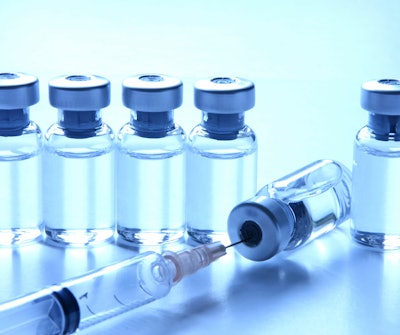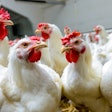
There’s a big debate going on about whether or not to vaccinate against highly pathogenic avian influenza (HPAI). However, until that debate is settled, biosecurity remains the commercial poultry industry’s best bet at stopping the spread of the virus.
At the 2023 Poultry Tech Summit, three industry experts explored the new technological applications that could prevent the global spread of HPAI.
The panelists included John El-Attrache, Ph.D., global director of science and innovation at Ceva Animal Health, Stephane Lemiere, DVM, global head of veterinary services, avian, Boehringer Ingelheim and David Suarez, DVM, Ph.D., acting laboratory director, Southeast Poultry Research Laboratory.
To vaccinate or not to vaccinate?
France began vaccinating commercial duck flocks in October 2023, requiring vaccination for all flocks of 250 or more ducks whose meat or foie-gras products were sold commercially.
“I think it’s important for people within the industry and segments within the industry to understand you have to save the industry, and that’s where France was,” Suarez explained. “Trade between Europe, France and the U.S. is also, as we all know, a political venue. Communications and assurance of what’s going on and how you’re tracking this needs to be put in place for both countries.”
There are lots of pros and cons to vaccinating against HPAI, with concerns about trade being one of the biggest barriers. (For whatever it’s worth, the World Organisation for Animal Health (WOAH) recently said that HPAI vaccination should not impact safe trade provided that it is implemented correctly).
Beyond trade, the industry also needs a vaccine that capable of quickly adapting to HPAI as it evolves.
“It’s not only the technology of the autologous vaccine that has to be replenished every time the virus changes, even a little bit. It’s all that comes with it when it comes time to apply in the field,” added Lemiere.
The case for biosecurity
Even when the challenges associated with vaccine technology and trade are ironed out, HPAI control will still require a multi-pronged approach to control. This means that biosecurity remains a critical component of any program.
“You have to find a way to make sure that management from the top down emphasizes biosecurity, whether it’s during the time of heightened possibility when migratory waterfowl are coming over here or not,” said El-Attrache.


















